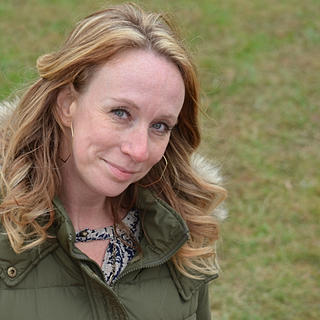Middle TN UMC Reach Out to Older Population During Pandemic
- Amy Hill
- Apr 14, 2020
- 3 min read


While much of the state has shut down during the COVID-19 pandemic, Middle Tennessee United Methodist churches are actively responding to the needs of the most vulnerable population — older adults.
“Today, it is more critical than ever that we continue our advocacy work as church leaders in older adult ministry while ensuring that vital needs of older adults are being met in financial assistance, food and meals security, transportation, and spiritual well-being,” said Dr. Richard H. Gentzler, Jr., director, ENCORE Ministry of the Tennessee Conference of The United Methodist Church.
“We must help to make sure diverse and uniquely vulnerable older adults get the support they need. This list includes, but is not exclusive to, older adults of color, older adults with disabilities, older adults who are caregivers, immigrants, LGBTQ, or refugees, and older adults experiencing loneliness and isolation.”
Middle Tennessee United Methodist churches are responding to those needs in a variety of creative and compassionate ways:
Hendersonville’s Good Shepherd United Methodist Church is keeping members connected with online worship services and evening Bible studies. Members of their Congregational Care Committee have divided into teams and are calling all members once a week or sending cards. Members of Sunday school classes and other small groups are also staying in touch by phone and sending emails to one another.
With patience and guidance, older adults at Winchester First United Methodist Church are now up and running via Zoom so they can continue a Bible study. Each day, members receive a phone call with a recorded devotional from the pastor. Also, Shalom Team leaders make phone calls to widows, widowers, and homebound members at least twice a week. Volunteers in younger age groups grocery shop for older members and deliver items with at least six feet of separation or leave the items on the recipient’s porch. Staff from the children’s department are coordinating calls between older adult members needing an extra boost of hope and children of younger adult members.
Members of Morton Memorial United Methodist Church in Monteagle have altered their food distribution ministry so recipients can drive through and pick up boxes of food. Pastoral care teams regularly reach out to members via phone calls, texts, and email. Those without internet access receive a printed copy of the weekly sermon.

In addition to working with the Gallatin Chamber of Commerce to match senior adults’ needs — picking up groceries and prescriptions — with volunteers under 60, First United Methodist Church in Gallatin has agreed to be used as an alternate care facility if additional health-care space is needed. In cooperation with Sumner Regional Medical Center and following the direction of the US Army Corp of Engineers and FEMA, the church could receive recovering COVID-19 patients whose health has improved after receiving intensive care at the hospital.
Franklin’s First United Methodist Church (FUMC) is creatively addressing community needs by modifying existing programs and ministries during the pandemic. Meals on Wheels team members are operating out of a church member’s home and sewing ministry members have made more than 1,000 protective masks for Williamson Medical Center and other health care workers.
Volunteers of FUMC’s feeding ministry, the Giving Garden, are working in shifts in the 5-acre garden to observe social distancing protocol. This year they are planting potatoes as they require minimal tending before harvesting and distributing to community agencies such as Daughters of the King and Williamson County DUI Court. FUMC staff is also diverting funds normally used for sheltering homeless individuals and families at the church. Together with community partners such as Williamson County Homeless Alliance and Williamson County Emergency Management Agency, as many as 15 hotel rooms have been reserved for housing. Area restaurants provide meals, thus enabling homeless individuals and families to safely shelter in place during the pandemic.
“The COVID-19 outbreak has shown that we are dependent on each other now more than ever,” said Gentzler. “No matter where we come from or what we look like, we know it’s time to pull together to help one another navigate through the layers of uncertainty. Indeed, this is a vital time for churches in Middle Tennessee to be flexible and embrace innovative approaches to our ministry with persons of all ages.”





Comments